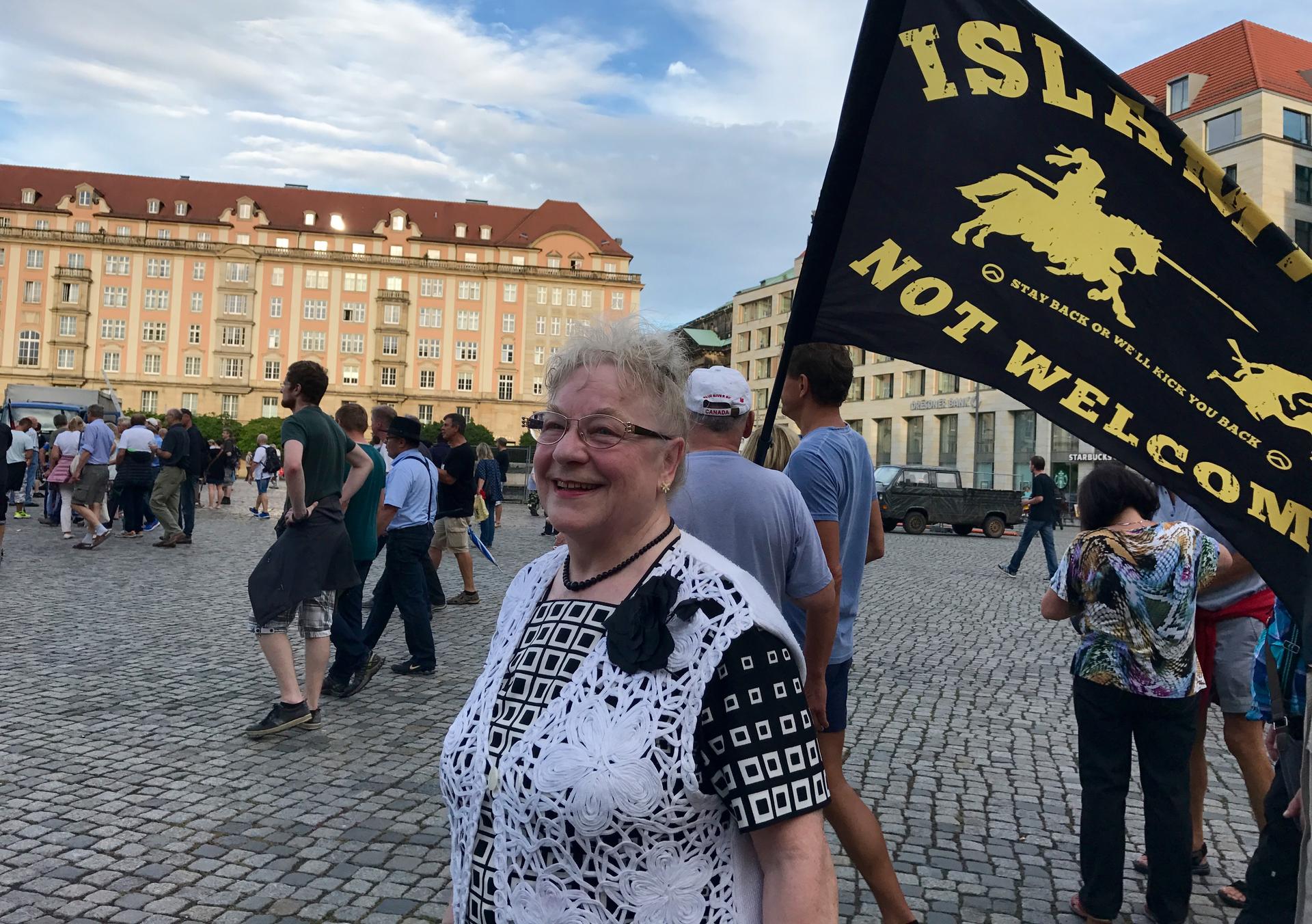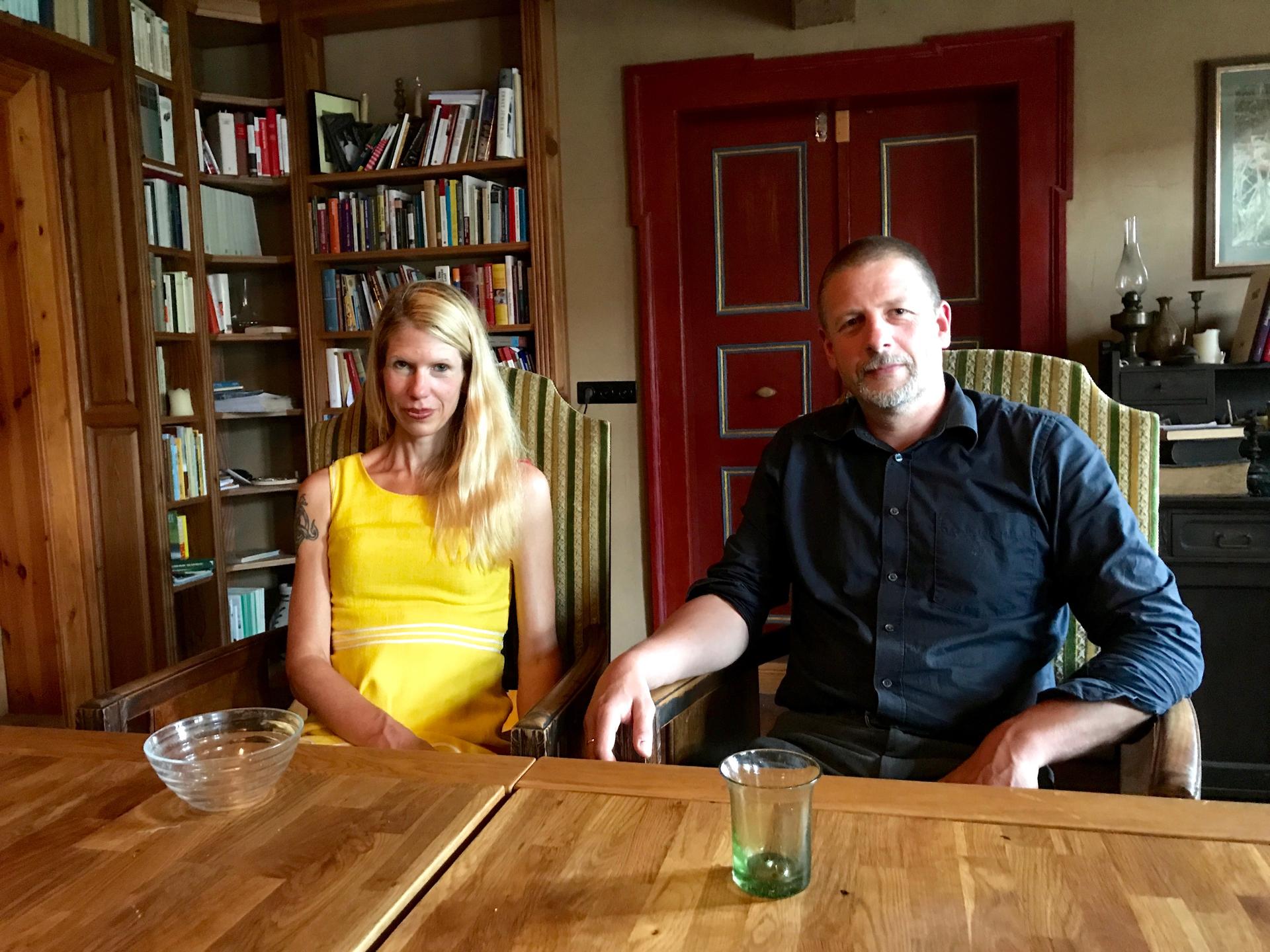One simple word defines Germans, but Germans don’t agree on what it means
A supporter of the anti-Muslim group PEGIDA in Dresden, Germany.
The German word Volk is the first cousin of the English "folk."
The two words both mean "people." But Volk means much more, thanks to Germany's history.
In this latest episode of The World in Words podcast, we examine Volk and its many variations.
We talk with linguists and historians about how Volk and the related advective, völkisch,were used by 19th century German nationalists as rallying cries for German statehood, how the words came to be associated with theories of race and ethnicity, and how the Nazis exploited that.
We also spend time with right-wing PEGIDA protesters on the streets of Dresden, who offer definitions of Volk that hark back to the days of racial "purity." PEGIDA stands for Patriotic Europeans Against the Islamization of the West.

We also hear from a high priest of the German right, activist and publisher Götz Kubitschek, who wants Germans to start using Volk-related words again because they "create a sense of belonging … and 'us' and a 'not us.'" Who is German, and who isn't German, among today's population? Kubitschek acknowledges that such could lead to "non-peaceful situations." But he says he refuses to compromise with Germany's political class, including Chancellor Angela Markel, whom he blames for "telling us not to use the word Volk."

We hear also from Merkel herself, who generally favors the more neutral Bevölkerung (population) over Volk. But earlier this year she castigated her right-wing critics for their attempts to define Volk in ethnic terms. She offered her own description: "The Volk is everyone who lives in Germany."
It sounds much better in the podcast. Give it a listen by clicking the play button above or, better yet, subscribe at Apple Podcasts or wherever you get your podcasts.
You can follow The World in Words stories on Facebook or Twitter.
